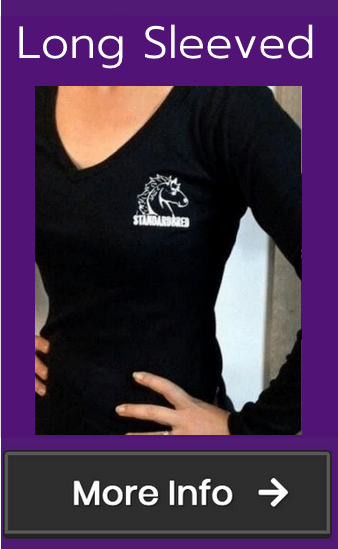Well, Spring has well and truly sprung! Coupled with the gorgeous weather comes the urge for riders to dust off the boots, get out there and start doing great things with their horses again!
With competition season in full swing, I thought I’d jot down five simple, but highly effective, ways to get the most out of your next big event!
Arrive early
Oh man, how bad is running late for a competition?! Rushing around, feeling flustered over the smallest details. You can be sure it’s always on those days when your horse will decide not to load, or traffic will be at its worst, and you can feel the angst bubbling away inside you.
By the time you round into the carpark, the adrenalin kicks. Of course, this feeds negative energy to your horse and really sets the mood off on the wrong hoof.
You rush to the loo, but forget to take your cards to the secretary’s office. You backtrack and on the second trip notice your horse has broken loose and is enjoying a graze near the next float. You’ve forgotten to pack your girth. You can’t find a mounting block. Or, like I did so TRAGICALLY one day, you forget to present for gear check and inevitably rob your horse of a champion sash and a fancy woolen rug…. Disaster!
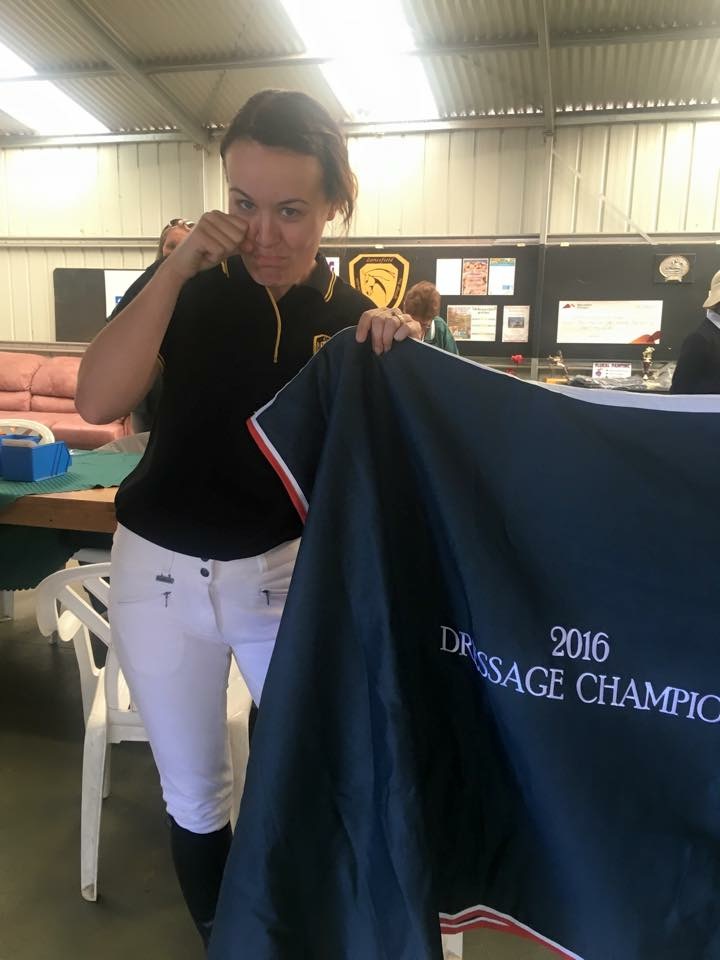
As outlined in our two main online courses, which both feature lectures on competitions, I like to plan my events by working backwards. I take the time I need to be in the arena, then deduct the amount of time each element of preparation time will take.
For example, if I’m scheduled to ride a test at 10am, I’ll plan my day as follows:
10am ride – 30 mins to warm up and gear check = 9:30am
– 20 mins to tack up = 9:10am
– 15 mins to unload the horse and my gear and settle myself = 8:55am
-15 mins to lodge my cards and go to the toilet = 8:40am
– 10 mins to enter the venue and find parking = 8:30am
– 1 hour trip = 7:30am
– 15 mins to allow for any traffic delays = 7:15am
And so forth….
Maximise your warm-up
So often, the warm-up arena is used by competitors as a place to ride aimless circles. However, this time before a test or round of jumping is just gold, in terms of setting your horse up for success.
If your horse is an anxious type, this is your opportunity to run out some of the pent-up energy and allow them to take a walk around and see different areas of the grounds (and get up close to any potentially scary objects!)
My former competition Standy, Alex, used to become highly adrenalised and ‘scooty’ when surrounded by other horses. The behaviour apparently started on the track when he was young and was a pretty well-ingrained habit by the time I took him on.
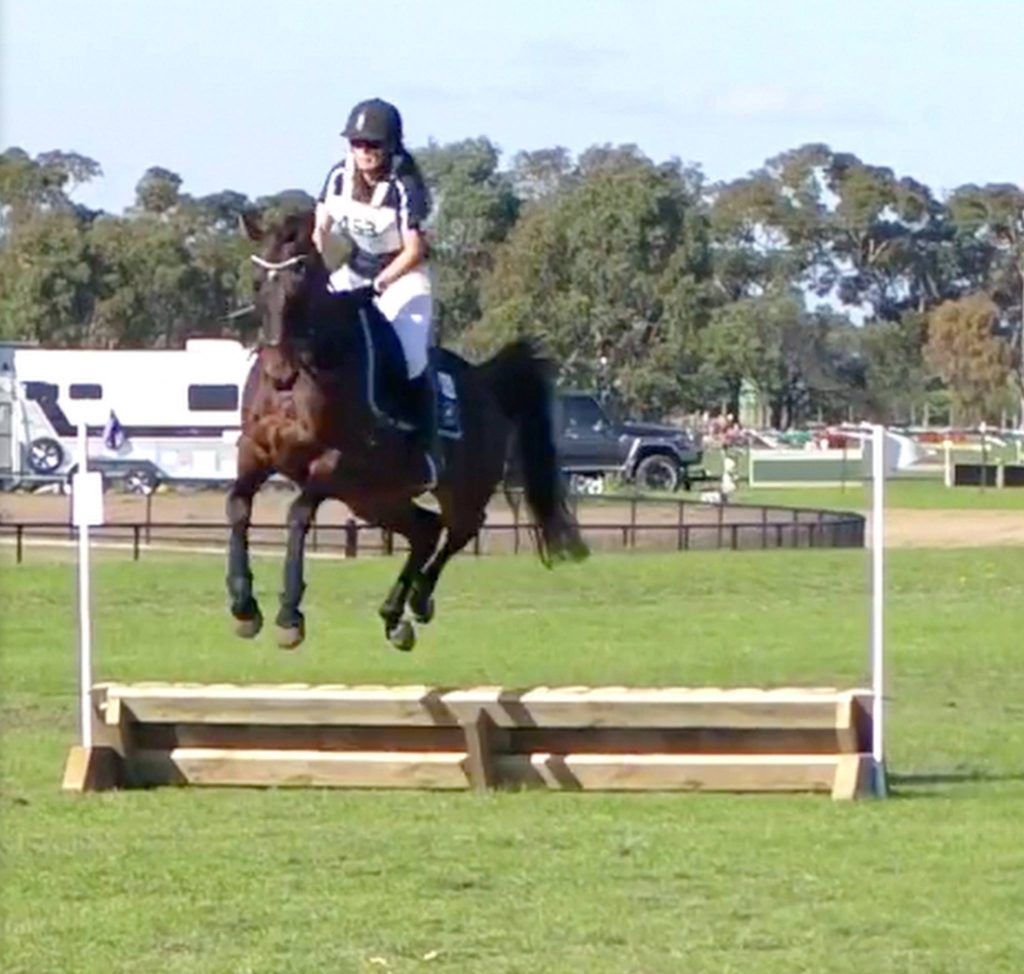
With repeated exposure to warm up rings, he did inevitably become more relaxed over time. However, if we were in a very confined space, or there were horses coming up behind us at speed, he would become quite unpredictable. In knowing this, I often would just opt to take him into a quieter, ‘unofficial’ warm up space.
As cited in our Standardbred Masterclass online course, by expert contributor Danielle Pooles from Dressage Plus, a little preparation can help you to get around horse anxiety.
“Work out where you are allowed to ride when you check in at the start of the day, and if you are there with other people, let them know before you get on where you might end up warming up. That way you don’t need to worry about these people trying to find you!”
If you are the anxious one (or an over-thinker like me), this is the perfect time for ‘mental rehearsal’. Run over your test in your mind. Think about the movements or types of jumps you’ll need to be prepared for, or ride with extra attention to detail. Breathe. Find your calm.
Danielle, a qualified NCAS riding instructor, NLP (Neuro Linguistic Programming) practitioner and Life Coach, talks in detail in our Masterclass course about other fantastic relaxation and focusing techniques in the dedicated ‘Competition’ section of the course syllabus.
Nail your entry
When you’ve got a whole test or course ahead of you, the very best thing you can do to put yourself in a good frame of mind is to nail that first movement or jump.
Riding a kickass centre-line and halt, or coming into that first (often inviting) obstacle with confidence, can really set the tone for an amazing workout. In your mind, you’ll be thinking “we are so ON today”, which lends itself to positive energy building with a snowball effect.
Conversely, if you ride a rather choppy entry, you’ll open the door for negative thoughts to creep in. It’s particularly difficult to reset your brain once you feel like you’ve already dropped marks or given the judge a poor impression of your abilities (or crashed a rail down, leaving you with little margin for any further errors).
So, make the most of the pre-entry/pre-first-jump circles, get a good rhythm happening, pin your eyes on your line and think positively – as I tell my students, a formal event is simply your chance to show-off all those wonderful skills you’ve been training at home!
Isolate the movements/Don’t overthink the tricky stuff
Ok, so you fudged your left lead canter. You’ll probably only get a 4-5 score for it. Not ideal… But, also, not the be-all and end-all!
Your horse took a last-minute glance at a dazzleboard, saw a hidden Boogyman and swung a run-out. But… you didn’t fall off – woo!
Yes, it just plain sucks to muck up a movement or jump that you’ve mastered at home. But, you need to keep a bit of perspective about things, so you don’t ruin your chances on the whole.
The beauty of all the Olympic equestrian disciplines (I can only speak of what I know personally) is that every movement or jump is scored in isolation to the rest of the test/course (aside from jumping time penalties). Therefore, if you can keep this in the back of your mind, you’ll know that any blunders are going to be treated as a one-off mishap and not be taken into account for the rest of your ride!
Where it’s easy to run into trouble is getting caught up and upsetting yourself over one or two muddled movements. If you allow yourself to become flustered, you’re guaranteed to make more mistakes, or create tension with your animal.
Bad movement? Write it off and focus on what’s coming up. After all; there’s always the next move to make up for lost ground!
Smile
So, in the spirit of being completely honest, this is something I particularly suck at: smiling when I ride.
My ‘concentration face’ is super scary! I have to actively work on swapping my ‘sucked on lemons’ look for a sunnier expression when I hit the competition circuit. I can’t help it; I just get so caught up in my own head, that I forget to outwardly express the pride I feel when my super standy tries his/her guts out to get it right (sidenote: this is actually how I’m feeling, contrary to the scowl!)
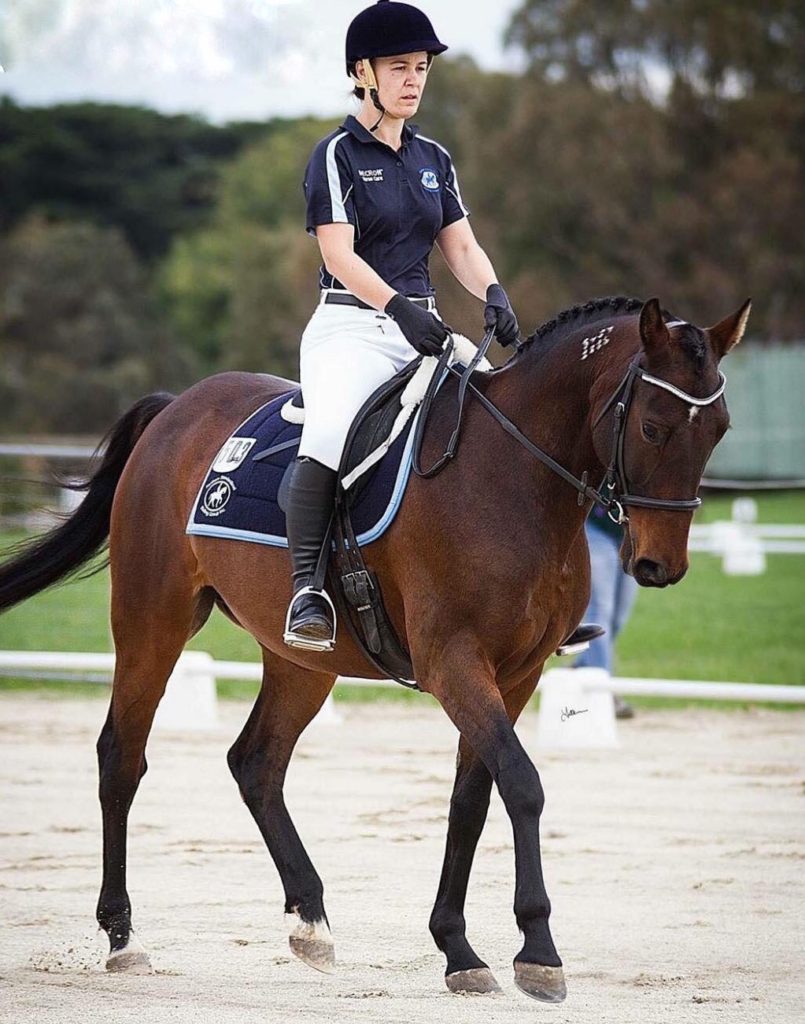
But, smiling is just so important and that’s why I’m making it a formal ‘goal’ of mine to do better at. By smiling, I know I will remind myself to relax my face and, in turn, my body. This feeds good vibes right down through to my horse. Smiling takes less facial muscles than frowning (just a fun fact for you) and will help the judge to gauge how you’re feeling about the test and generally see that you’re enjoying yourself (positivity is infectious… hopefully right through to the score sheet!)
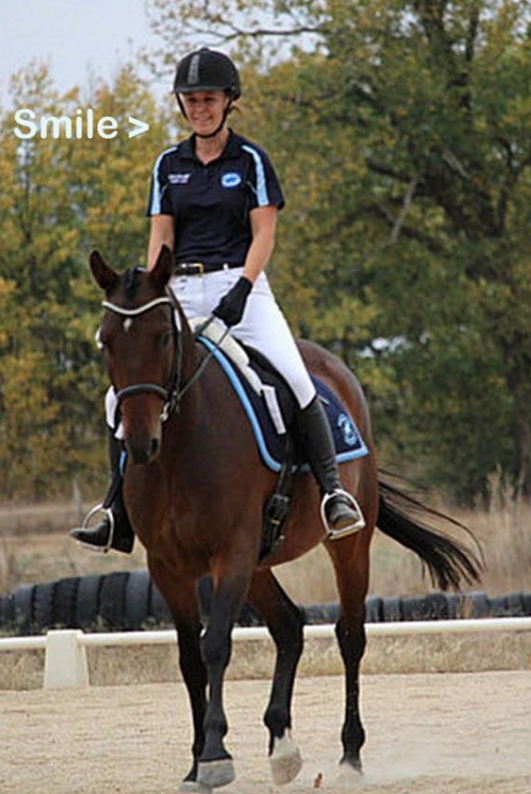
So, in summary, taking an inexperienced horse out to a competition can be quite a daunting proposition, even for riders who have been around the traps before, of for well-travelled racehorses (as ridden comps are a totally different ball game!) This is why both our introductory Retraining the Standardbred: Track to Hack and Standardbred Masterclass online courses include detailed lectures which help to strip back and simplify the process, to make the experience as stress-free and positive as possible!
Remember that horsemanship is meant to be ENJOYABLE! So, don’t put too much pressure on yourself or your horse in the early stages, remember that organisation is the key to success and also be mindful that your horse will feed off your energy – let the good vibes roll and bring on some fun dancing in the sand!

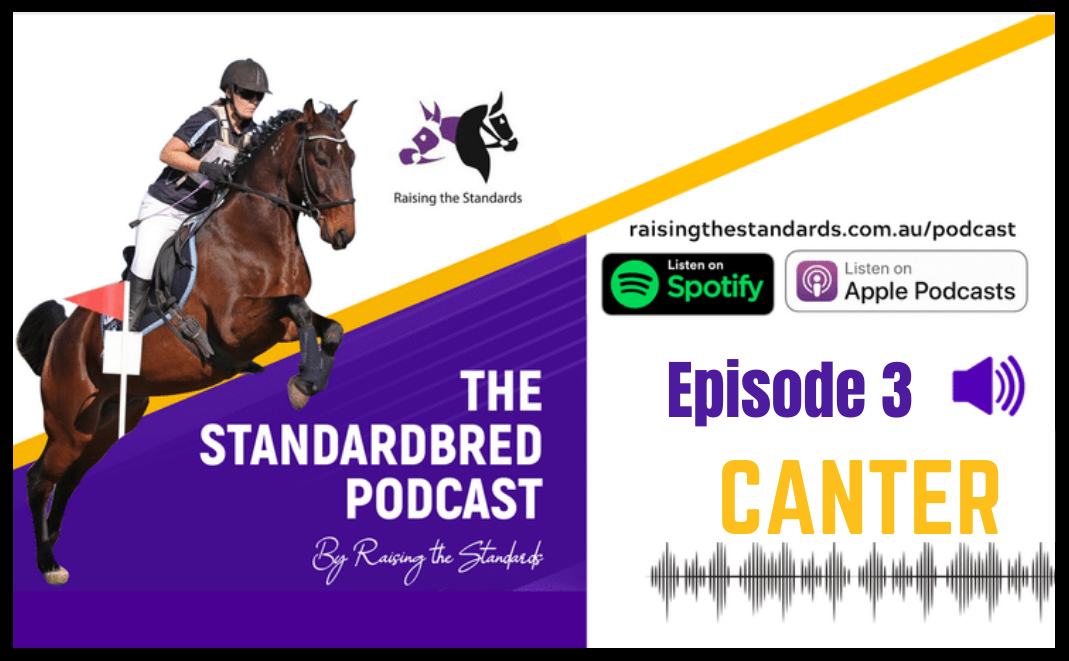
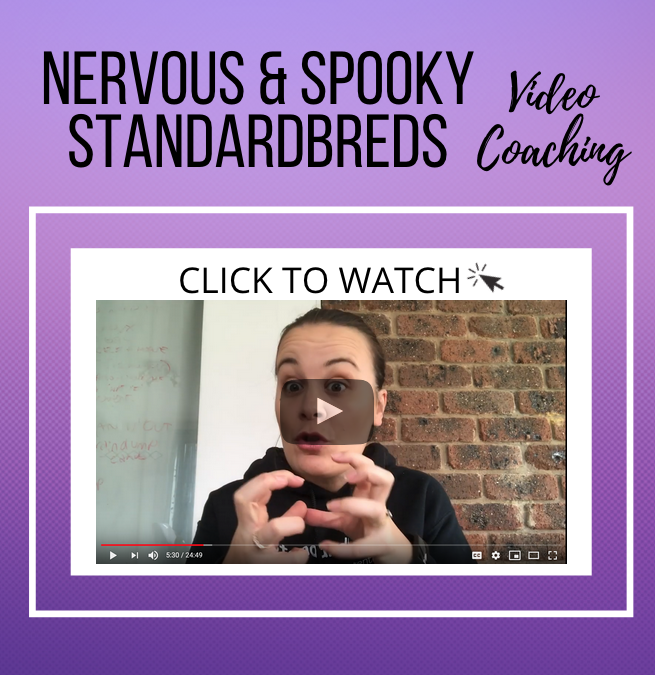
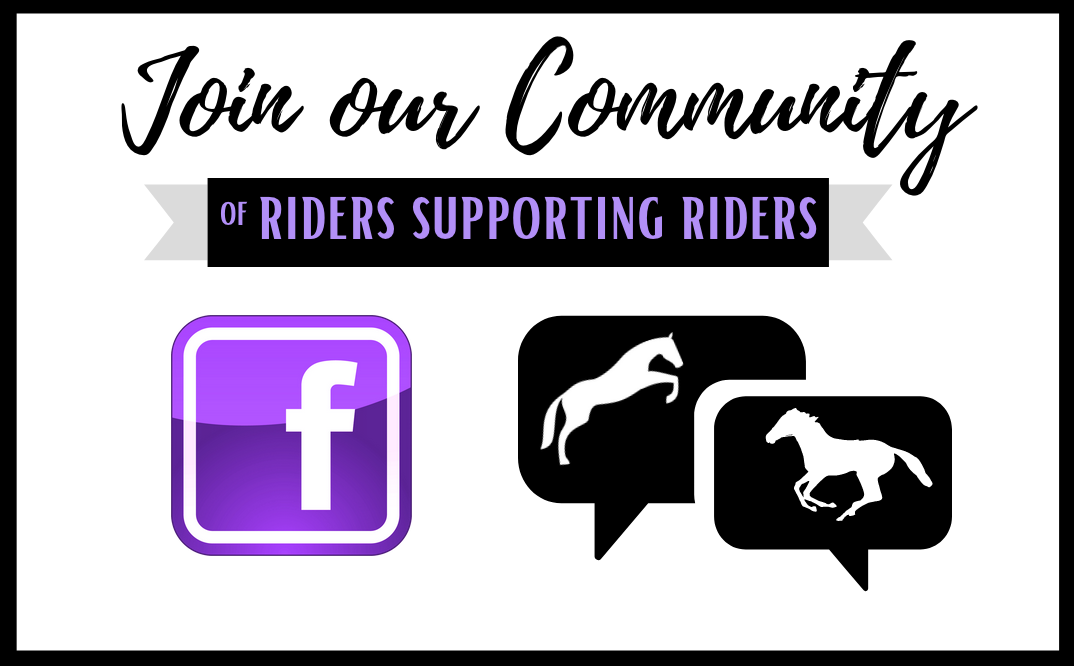
SNUGGLE UP THIS WINTER: SHOP STANDY WEAR:



